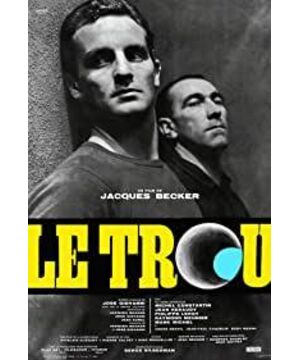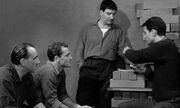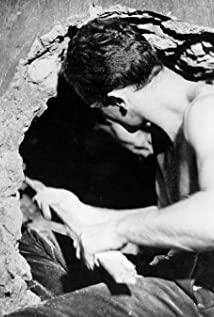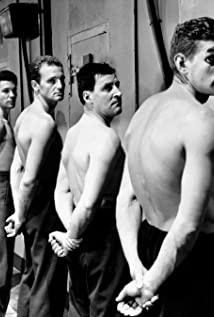The film tells a story that happened in the Sainte Prison in France in 1947. The five people in the cell have very different personalities. Manu is restrained and resolute, taciturn; Roland is tough and resolute, exuding the light of wisdom; Gio is sloppy on the outside, kind-hearted; Worcelin is cheerful and lively, with affinity; Gaspard's character is the main line around the whole film. He is good at capturing information by observing words and deeds. His words and deeds have hidden intentions to meet and please, and his heart is a weak and barren barren land. As a newcomer, Gaspard used his excellent talent to gradually gain the trust of four inmates, and also learned the secret hidden in this prison-the escape plan.
Under the leadership of technical stream Roland, the four of them drilled the hole of freedom little by little in an unimaginable way. At one point Gaspard and Manu went through the sewers and lifted the manhole covers on the street. Looking at the free-running taxi, they imagined and tasted the taste of freedom. The sight on the streets was bleak and sad, and seemed to suggest a sad end. Their failure was not caused by external causes, but by Gaspard's weak and desolate heart. On the night before the escape plan, the warden told Gaspard that his case might be dropped. As a result, Gaspard faces a dilemma: if he continues to follow the inmates to implement the escape plan, he will break the law again and become a fugitive; if he does not follow the inmates to escape, he may face the crime of covering up again. accusation. In this case, Gaspard chose to tell the whistleblower, and the whistleblower's whistleblower was not accidental. His experience and past will somewhat find inevitable factors for his behavior. Gaspard lived a privileged life on his grandmother's inheritance, and later on a wealthy wife three years older than him, and began an affair with his sister-in-law. He was arrested by police on first-degree murder charges. According to Gaspard, he was arrested and jailed for injuring his own wife in an argument with his wife. But from his conversation with the warden, the truth about Gaspard's imprisonment may be that his wife had an affair with a local official, while he was having an affair with his sister-in-law. Gaspard probably wanted to kill his rich wife, and then inherit the family property with his sister-in-law and occupy the magpie's nest. Gaspard's meanness and selfishness hidden in his mild innocence are exposed at the last moment of the film, and the hateful whistleblower finally gets another prison waiting and everyone's scorn. Rowland's sentence: "Poor Gaspard." A perfect ending to the fate of such a person.
3
View more about Le Trou reviews











